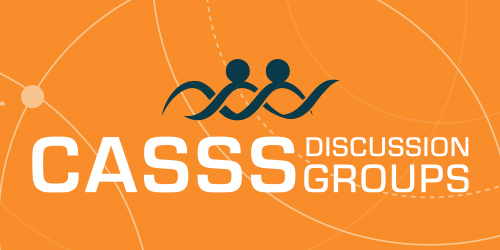Virtual Europe Discussion Group
The Virtual Europe Discussion Group provides opportunities for the broader community of industry, academic, and regulatory professionals to meet and share ideas and experiences. The group will discuss scientific challenges in the field of biopharmaceutical development and regulation with a focus on Europe.
The Virtual Europe Discussion Group goals include:
- Share learning across industry, academia, and health authorities across Europe, with a focus on speakers from across the region.
- Generate new scientific and technical insights and solutions for developing biopharmaceutical products in the future.
- Contribute to the expansion of CASSS’ mission, vision, influence, and community in Europe.
Click on the tab title below to view Speaker Presentations from the most recent meetings:
2025 Speaker Presentations
Promote Your Participation

Here are some ways you can share your message:
- Follow CASSS on Facebook, X, and LinkedIn. Stay up-to-date on the latest Discussion Group announcements and opportunities. Links can be found in the right column or at the bottom of this page.
- Share your participation via your personal Facebook, X, and LinkedIn accounts. Whether you are a recurring presenter or this is your first time attending, we are grateful to have you join us this year.
- Share the news with your colleagues who run your organization's official social media channels. We are proud to show our community your participation - let your community convey their support too.
- Personalize your email signature. Add an image or short message to your default email signature to let your colleagues know you will be attending the Discussion Group.
- Remember to tag CASSS on all social media posts.
If you have any questions about this media kit, please reach out to Renee Olson.
Thank You for Joining Us
We appreciate your participation in the Virtual Europe Discussion Group on 13 November 2025 and hope you consider joining us next time. More information coming soon.

CASSS On Demand
Access approved content from past meetings in the CASSS On Demand platform. CASSS members have access to all available presentation recordings. Visit ondemand.casss.org, login to your account, and select from the list of meetings to begin.